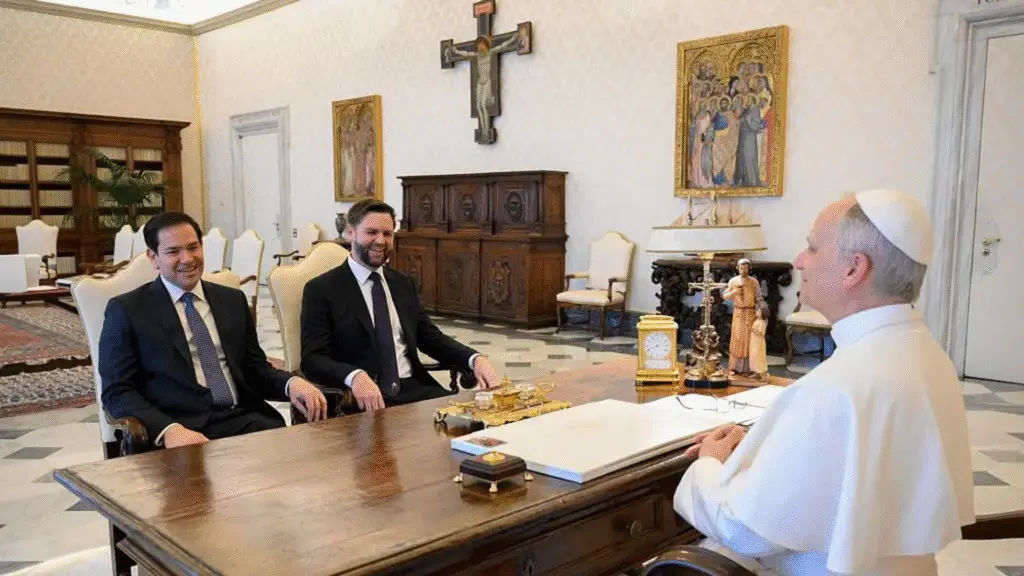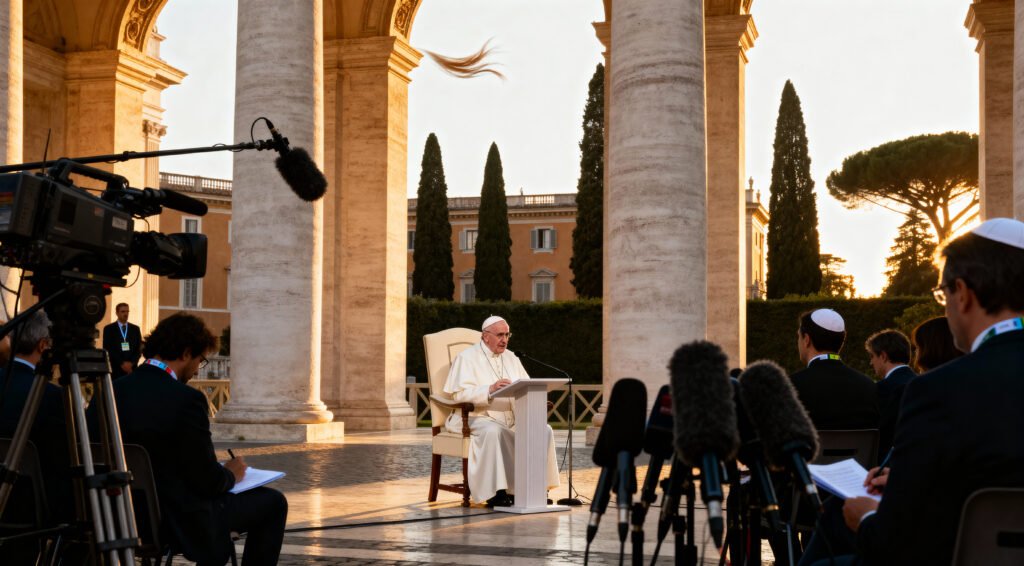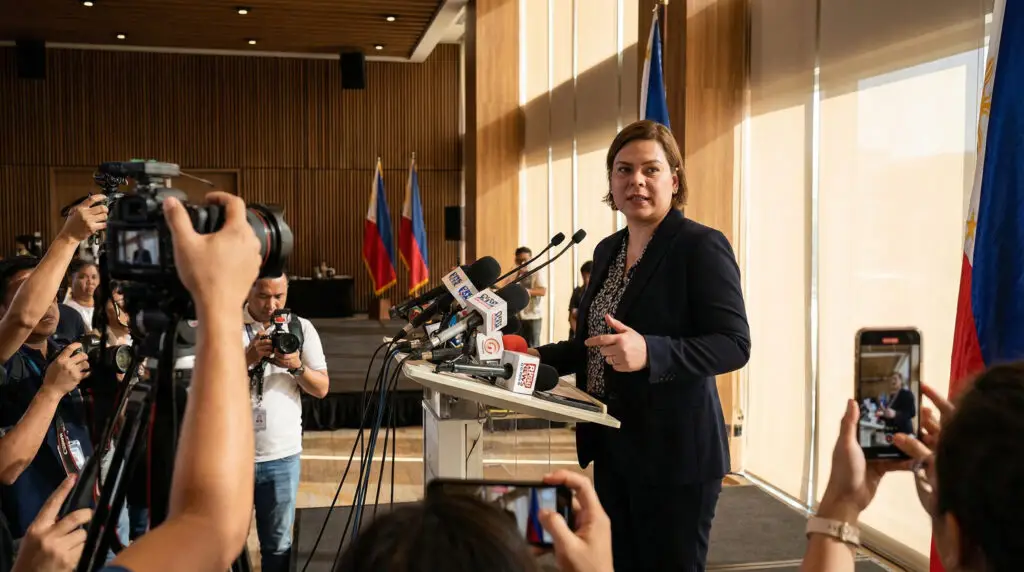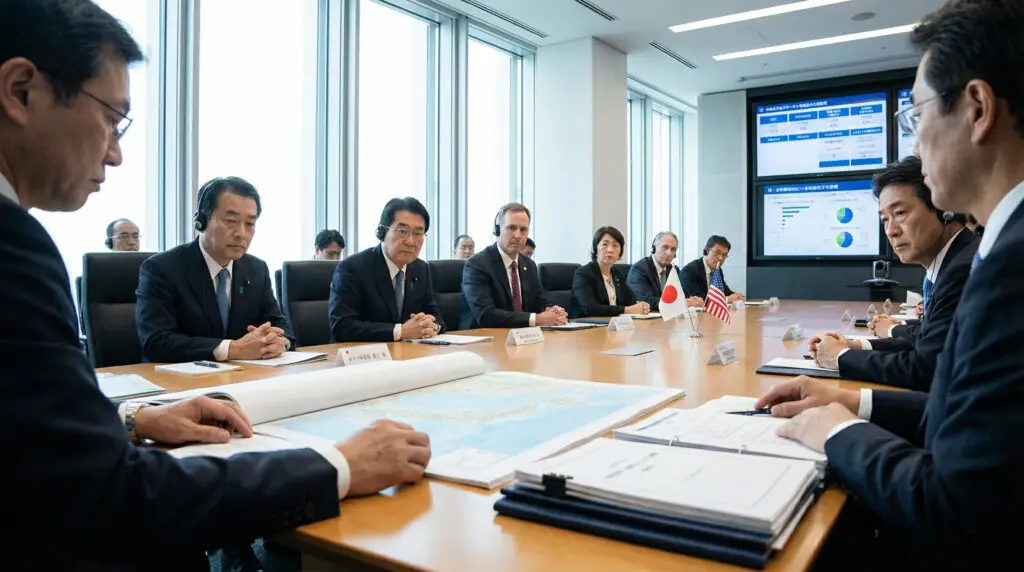Pope Leo Condemns Trump’s Migration Policies In Strongest Remarks Yet
VATICAN CITY — November 5, 2025 — Pope Leo XIV has issued his most direct rebuke yet of former U.S. President Donald Trump’s administration, urging Americans to reflect deeply on how their country treats migrants and refugees. The remarks marked a significant moment for the first U.S.-born Pope, who has gradually taken a more outspoken stance on global and moral issues.
Speaking at his papal retreat in Castel Gandolfo, Pope Leo addressed television cameras and a small group of reporters. He said that “many people who have lived in the United States for years without causing harm have been deeply affected” by Trump’s mass deportation policies.
A Call For Compassion Toward Migrants
In his English-language remarks aimed directly at an American audience, Pope Leo reminded Christians that their faith calls them to welcome “the foreigner.” He emphasized that compassion and empathy must remain at the heart of U.S. immigration policy.
“I was struck by how direct his reference was,” said Catholic historian Austen Ivereigh. “He’s clearly referring to the ICE roundups. It’s very strong.”
The Pope’s comments follow his growing concern about reports that Catholic detainees in U.S. immigration facilities near Chicago were denied access to communion. “I would certainly invite the authorities to allow pastoral workers to attend to their needs,” he added.
Warning Over Venezuela Tensions
Pope Leo also condemned the U.S. military’s bombing of Venezuelan ships suspected of drug trafficking, warning that such actions risk escalating regional instability.
“I think that with violence we won’t win,” he said in Italian, urging diplomatic dialogue and calm. He cautioned that the deployment of U.S. Navy vessels near Venezuela increases tension rather than protecting peace.
Recommended Article: Trump Threatens Military Action In Nigeria Over Reported Christian Killings
Shifting Tone Of The American Pope
Since his election in May 2025, Pope Leo has been careful to avoid political confrontation. However, his tone has hardened in recent months. Last month, he described Trump’s immigration crackdown as “inhuman,” a statement that unsettled many conservative Catholics in the U.S.
“Some thought Leo would be different, that he’d shift Church teaching to align with American politics,” said Ivereigh. “But they now realize his style may differ from Pope Francis, yet his priorities remain unchanged.”
Background And Early Life
Born Robert Prevost in Chicago, Pope Leo served much of his career as a missionary in Peru, an experience that shaped his understanding of migration and social inequality. “He’s been welcomed as a migrant himself,” noted Professor Anna Rowlands of Durham University. “That experience gives him empathy toward displaced communities.”
In his first major papal document published last month, Pope Leo declared that poverty and migration would remain central themes of his papacy. The statement reaffirmed over a century of Church teaching on family unity, compassion, and the dignity of all people.
Meeting With U.S. Officials
Earlier this year, Pope Leo met with senior members of the Trump administration, including Vice President JD Vance and Secretary of State Marco Rubio, at the Vatican. Despite the meeting’s cordial tone, the Pope’s latest statements suggest an increasing willingness to challenge U.S. policies that conflict with humanitarian values.
Observers note that Leo’s decision to speak from Castel Gandolfo, a retreat traditionally closed to the press, signals a new level of transparency and accessibility in the Vatican’s communications.

A Continuation Of Francis’ Legacy
While his approach differs stylistically from Pope Francis, Pope Leo’s remarks reaffirm the Church’s enduring call for compassion toward migrants and nonviolence in global affairs. “Leo offers an entirely orthodox response,” said Professor Rowlands. “He continues the same moral vision that has guided the Church for decades.”
A Papacy Defined By Courage And Continuity
Six months into his papacy, Pope Leo XIV is emerging as a leader unafraid to confront political power while maintaining pastoral empathy. His words now resonate far beyond the Vatican, putting renewed moral pressure on global policymakers—especially those who identify as Catholic leaders.
“When the Pope speaks this firmly,” said Ivereigh, “it forces both reflection and accountability. He’s taking that risk now.”























